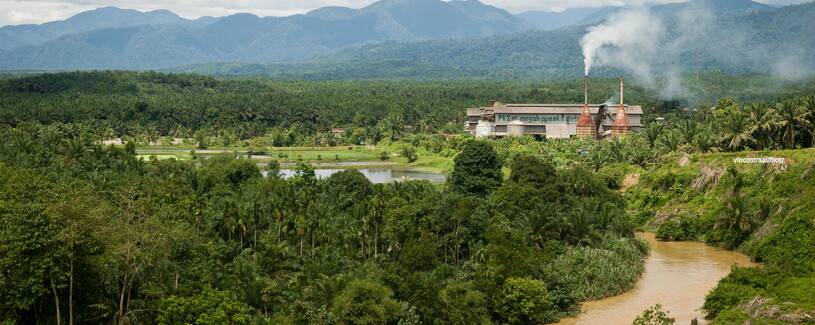Corporations and Conservation: The Long Road to Partnership

Since finishing a few weeks ago, my summer internship experience has been the most popular subject of conversation with friends and colleagues. When I say that I helped WWF develop regional corporate partnerships in Asia, people are caught off guard. I understand why: my work at Yale has mostly centered on sustainability issues in Latin America and, at first glance, working for a conservation organization in Asia seems out of synch.
A deeper look reveals crucial connections between the two regions.
“There is no sustainable world without a sustainable Asia-Pacific” according to the vision of WWF’s Asia Pacific Growth Strategy Team, which hosted me this summer. The catchy motto holds truth. The region accounts for about 50 percent of all international trade flows; the majority of its imports from developing regions, like Latin America, are commodities with large environmental impacts. This pattern is linked not only to direct consumption, but also to how companies source and value inputs. Working for WWF gave me experience in the types of corporate partnerships we could engage in to address the sustainability challenges of an interconnected world. It demonstrated how business efforts in Asia-Pacific could pay dividends for Latin American conservation.
WWF’s Market Transformation Initiative (MTI) is a driving force behind the organization’s corporate partnership strategy. The MTI was founded on the belief that making businesses more sustainable is the most efficient way to achieve conservation goals. Through the MTI, WWF identifies the commodities with the most significant impact on critical regions and focuses its efforts on transforming the biggest corporate players within those commodities’ value chains. In this TED talk, Jason Clay, Senior Vice-President of Market Transformation at WWF, eloquently explains the domino effect that this strategy will have on biodiversity conservation.
But partnering with businesses remains a difficult proposition; it opens conservation NGOs to added scrutiny and even backlash from its members and donors, the media, and the scientific community. The stakeholders’ scrutiny is justified due to very real concern over green washing and conflicts of interest. In that regard, WWF has taken important steps to improve the transparency and accountability of their corporate partnerships. What I learned about this process is that the most difficult preparation often entails understanding the challenges within—from employee concerns and expectations to the inertia of organizational structures. I therefore spent the bulk of my summer looking inside WWF to make what is arguably the most recognizable NGO in the world more effective in partnering with the private sector.
WWF is associated with conservation and a science-first approach that brings together scientists, advocates, policy-makers, and sustainability experts of business. Among its diverse employee base, there are some who whole-heartedly agree with WWF’s desire to engage directly with businesses and others who have reservations about working with the enemy. This dichotomy might at first seem simplistic, but it is pervasive across the environmental NGO sector. In practice, tensions between these worldviews can affect buy-in and complicate the implementation of transformative strategies such as MTI.
WWF has tackled the issue by actively breaking silos using wide communications channels and global, cross-disciplinary strategy and implementation teams. In addition, it has devised performance indicators that capture the full spectrum of partnership impact. Ensuring that this work is effective is particularly important at the regional level given the added complication of multi-country coordination. This summer, I was able to contribute to this process by assessing internal barriers for regional corporate partnerships and designing a framework for multi-country collaboration in Asia-Pacific.
It is a positive sign that WWF was recently rated as one of the top 3 trusted NGOs for companies to partner with, as these credentials increase the potential for the Asia Pacific Growth Strategy Team to leverage the brand into powerful partnerships across the region. If those partnerships are successful, the model will be replicated in other regions and ultimately deliver on the promise of global conservation impact.
Renzo Mendoza Castro is a joint MBA/MEM degree candidate at the Yale School of Management and the School of Forestry and Environmental Studies (’15). Renzo’s interest focuses on developing innovative partnerships structures that promote global sustainability. He leverages experience in microfinance and green lending operations, urban development, and climate change negotiations. Outside of work, his favorite thing about the summer was getting to know the most obscure Singaporean eateries.
Photo from vincentraal/flickr